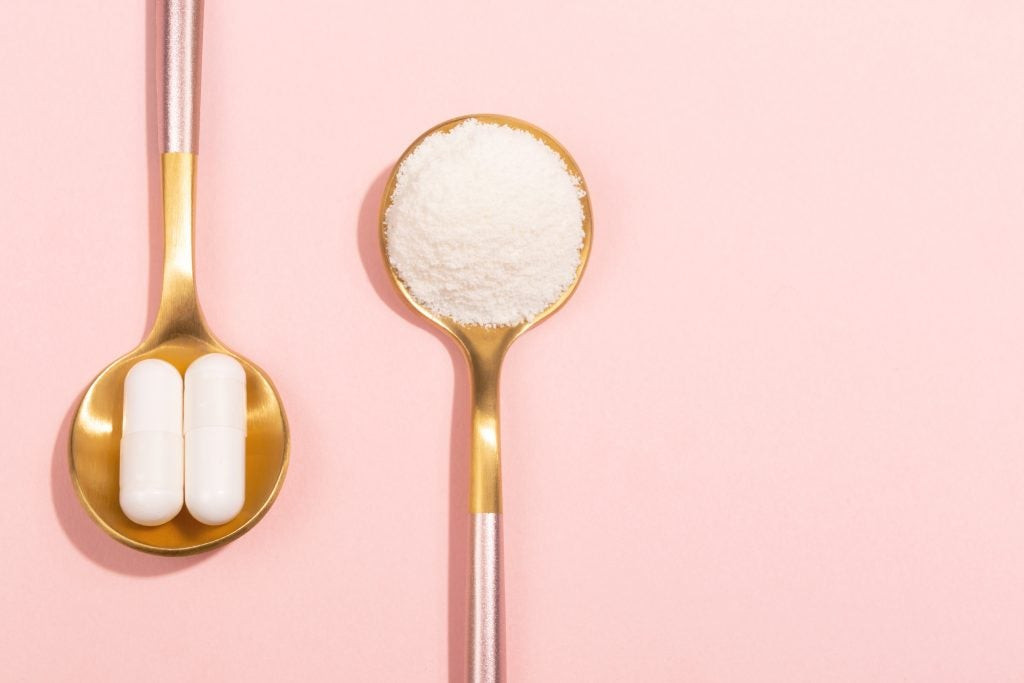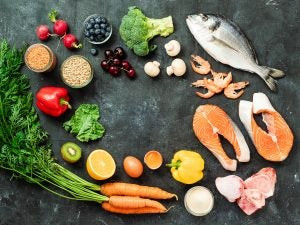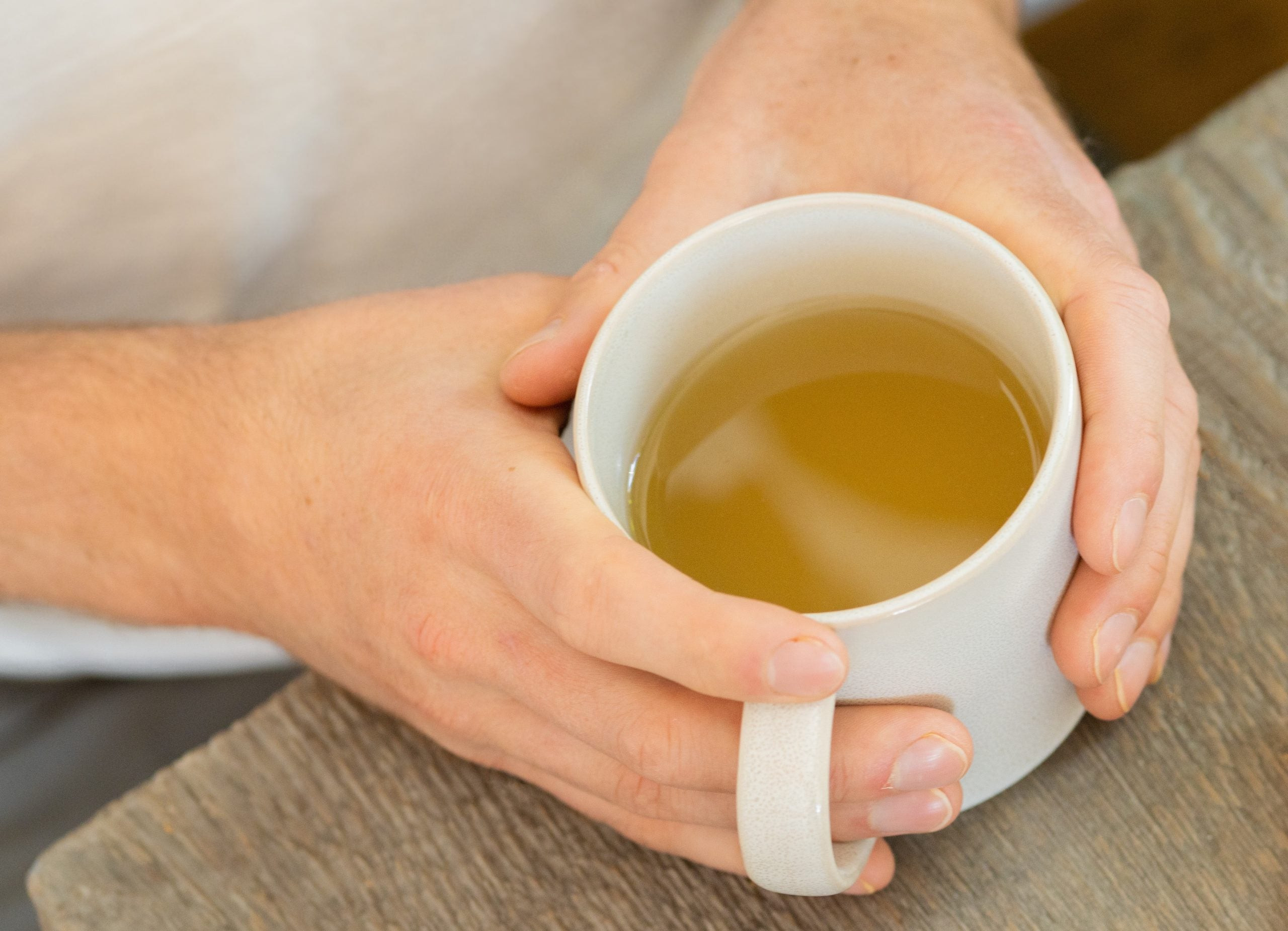Collagen, often hailed as the body’s most abundant protein, plays a pivotal role in maintaining our structural integrity. Imagine it as the scaffolding that supports our tissues, providing strength and resilience. This fibrous protein is the key component of connective tissue, which, as its name suggests, binds together various parts of our body. From the robust framework of our bones to the elasticity of our skin, the flexibility of our tendons, and the cushioning of our cartilage, collagen is indispensable. It’s what allows our tissues to stretch, withstand pressure, and essentially, keep us together.
 two spoons, one with collagen powder and one with collagen supplements, set on a pink background
two spoons, one with collagen powder and one with collagen supplements, set on a pink background
So, Where Does Collagen Come From? While our bodies naturally produce this crucial protein, the sources of collagen are multifaceted, encompassing both internal production and external intake through diet and supplements. This article will delve into the origins of collagen, exploring its natural sources in food, the science behind collagen supplements, and lifestyle factors that influence our body’s own collagen synthesis.
Natural Sources of Collagen: Food and Internal Production
Understanding where collagen comes from requires distinguishing between how our bodies make collagen and how we can obtain it from external sources like food. Naturally, collagen is synthesized within our bodies through a complex process involving various amino acids and nutrients. However, we can also find collagen directly in certain foods, primarily from animal sources.
Collagen Production in the Body
Our bodies are remarkable collagen-making machines. This process, known as collagen synthesis, relies on specific building blocks – amino acids – derived from the protein we consume. Vitamin C is also an essential nutrient for collagen production, acting as a cofactor for enzymes involved in the process. This is why a diet rich in protein and vitamin C is crucial for supporting natural collagen synthesis.
However, as we age, our bodies’ ability to produce collagen naturally declines. This reduction in collagen production is further accelerated by external factors such as excessive sun exposure, smoking, alcohol consumption, and insufficient sleep and exercise. These factors can damage collagen fibers, leading to visible signs of aging like wrinkles and reduced tissue elasticity.
Dietary Sources of Collagen
When it comes to dietary sources, it’s important to note that collagen is exclusively found in animal products. Where does collagen come from in our food? Primarily from the connective tissues of animals.
- Animal Flesh: Meat and fish that contain connective tissue are natural sources of collagen. Tougher cuts of meat, which are rich in connective tissue, such as pot roast, brisket, and chuck steak, contain significant amounts of collagen. However, it’s worth noting that high consumption of red meat is not generally recommended for overall health and environmental sustainability.
- Fish: The bones and skin of both fresh and saltwater fish are also sources of collagen.
- Bone Broth: This trending health food is made by simmering animal bones in water, often with vinegar to help extract collagen and minerals. Bone broth is promoted as a rich source of collagen, but the actual collagen content can vary significantly depending on the bones used, cooking time, and preparation methods.
- Gelatin: Gelatin is essentially cooked collagen. It’s produced by boiling animal bones, cartilage, and skin, and then allowing the liquid to cool and solidify. Gelatin is found in foods like jelly and gummy candies and is also used as a gelling agent in cooking.
 Foods containing collagen or foods that help with collagen production including fish, shellfish, meat, oranges, kiwis, bell peppers, eggs, whole grains,
Foods containing collagen or foods that help with collagen production including fish, shellfish, meat, oranges, kiwis, bell peppers, eggs, whole grains,
While these foods contain collagen, it’s important to understand that when we consume collagen, it’s broken down into amino acids during digestion. These amino acids are then used by the body wherever protein is needed, not necessarily directly to replenish collagen stores. Nevertheless, consuming collagen-rich foods can contribute to the pool of amino acids available for collagen synthesis.
Foods that Boost Collagen Production
Beyond directly consuming collagen, we can support our body’s natural collagen production by eating foods rich in nutrients that are essential for collagen synthesis. These include:
- Protein-rich foods: As amino acids are the building blocks of collagen, consuming enough protein from sources like meat, poultry, fish, eggs, dairy, beans, and lentils is crucial.
- Vitamin C rich foods: Vitamin C is vital for collagen synthesis. Excellent sources of vitamin C include citrus fruits, berries, bell peppers, and leafy green vegetables.
- Zinc and Copper: These minerals are also involved in collagen production. Foods rich in zinc include shellfish, meat, nuts, and seeds, while copper can be found in liver, nuts, seeds, and whole grains.
Collagen Supplements: An Alternative Source?
The popularity of collagen supplements has surged in recent years, fueled by claims of improved skin, hair, nail, and joint health. These supplements come in various forms, including powders, pills, and even fortified foods. They typically contain hydrolyzed collagen or collagen peptides, which are broken-down forms of collagen intended for easier absorption.
Where does collagen come from in supplements? The collagen used in supplements is derived from animal sources, such as bovine (cow), porcine (pig), chicken, and marine (fish) sources. The source of collagen can influence the type of collagen present in the supplement. For example, bovine collagen is rich in Type I and Type III collagen, while marine collagen is primarily Type I.
Research on Collagen Supplementation
Research on collagen supplements is ongoing, with many studies focusing on skin and joint health benefits. Some studies have shown promising results, suggesting that collagen supplements may improve skin elasticity, hydration, and reduce wrinkles. Other research indicates potential benefits for joint pain and mobility, particularly in individuals with osteoarthritis or athletes.
However, it’s crucial to approach these findings with a degree of caution. A significant portion of collagen supplement research is funded by industries that could benefit from positive results, raising concerns about potential bias. More independent, rigorously designed studies are needed to definitively confirm the effectiveness and long-term benefits of collagen supplements.
Potential Downsides of Collagen Supplements
While generally considered safe, there are some potential downsides to consider regarding collagen supplements:
- Quality and Content: The supplement industry is not as strictly regulated as pharmaceuticals. The actual collagen content and purity of supplements can vary, and there have been concerns about contamination with heavy metals.
- Unrealistic Expectations: Relying solely on supplements may overshadow the importance of a healthy lifestyle. A balanced diet, sufficient sleep, and regular exercise are fundamental for overall health and natural collagen production.
- Cost: Collagen supplements can be expensive, and the long-term cost can add up without guaranteed benefits.
 a mug full of bone broth
a mug full of bone broth
Lifestyle Habits to Support Natural Collagen Production
Regardless of whether you choose to incorporate collagen supplements, adopting healthy lifestyle habits is paramount for supporting your body’s natural collagen production and overall well-being. These habits include:
- Sun Protection: Excessive sun exposure is a major contributor to collagen breakdown. Using sunscreen and limiting prolonged sun exposure can help protect collagen.
- Adequate Sleep: Sleep is crucial for various bodily repair processes, including collagen synthesis. Aim for 7-9 hours of quality sleep per night.
- Avoid Smoking: Smoking significantly damages collagen and impairs its production, leading to premature aging and other health issues.
- Stress Management: Chronic stress can elevate cortisol levels, which can negatively impact collagen production. Practicing stress-reducing techniques is beneficial.
- Regular Exercise: While the exact link between exercise and skin collagen is still being researched, exercise is known to promote overall health and may indirectly support collagen health.
- Balanced Diet: As mentioned earlier, a diet rich in protein, vitamin C, zinc, and copper provides the necessary building blocks and cofactors for collagen synthesis.
Conclusion: Focusing on Natural Collagen Sources and Healthy Habits
Where does collagen come from? In summary, collagen originates from both internal production within our bodies and external sources, primarily animal-based foods and supplements. While collagen supplements may offer potential benefits, particularly for skin and joint health, more research is needed to fully understand their effectiveness and long-term impact.
Ultimately, the most sustainable and holistic approach to supporting healthy collagen levels involves prioritizing a balanced diet rich in collagen-boosting nutrients and adopting healthy lifestyle habits. By nourishing our bodies with the right foods and protecting ourselves from collagen-damaging factors, we can support natural collagen production and promote overall health and well-being.
References
Last reviewed May 2021

